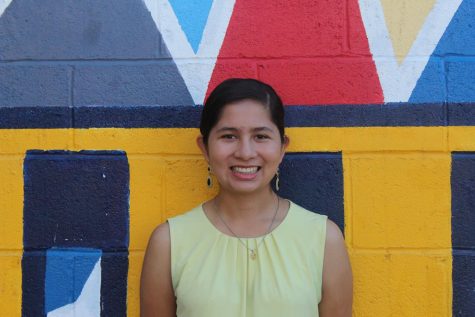
Victoria Gasca is a senior, and this marks her fourth year in newspaper. Her favorite part of newspaper is playing a role in making the campus well-informed....
March 19, 2020
Photo courtesy / Wikimedia Commons
Public health officials urge citizens to do their part and “flatten the curve” through social distancing.
Spring break is usually a time for vacation, socializing in groups, going to the movies, shopping at crowded stores, and a multitude of other activities that, because of the COVID-19 pandemic, you should refrain from until further notice. With EPISD schools closed for an additional two weeks following the holiday and some experts suggesting certain levels of social distancing measures may last as long as 12 to 18 months, it can be tempting to go out, just for the sake of sanity. After all, who is it going to hurt?
I’ve heard many students say things along the lines of “if I get sick, it doesn’t matter because I’ll recover,” but here’s the thing: it isn’t about just you. True, coronavirus patients aged 10-19 only have a 0.02% mortality rate. Statistically speaking, it is very improbable that you, a young person, will die if you contract the virus. The true danger, though, is that you become a carrier of the disease and can spread it without even knowing you have it. Based on data from China, about 80% of cases have mild symptoms, and the incubation period – the time during which a person is ill but does not display symptoms – is thought to last up to 14 days. If an infected person proceeds through their daily routine while unknowingly contagious, more people could contract the disease. This especially poses a threat to immunocompromised people and the elderly, both of whom have higher mortality rates than the average young person. These groups are more likely to be hospitalized, and if enough of them get sick, this could overwhelm the healthcare system and cause unnecessary deaths.
We are talking about other people’s lives at stake. So, what can you do to help? The Centers for Disease Control and Prevention (CDC) recommends a practice known as social distancing.
“Social distancing means remaining out of congregate settings, avoiding mass gatherings, and maintaining distance (approximately six feet or two meters) from others when possible,” reads the organization’s website.
Basically, do not leave the house unless you have no other choice. And when doing so, wash your hands, do not touch others, and disinfect frequently touched surfaces.
To pass the time while at home, get some rest, read, watch films and movies, cook your favorite foods, sing along to music, stretch, exercise, reorganize your room, call friends and family, practice playing an instrument, get ahead on your lessons, start or continue learning a language, draw, or find other productive or soothing activities. Continue to stay informed about the coronavirus, but don’t give into panic. Remember that everything will return to normal eventually.
Additionally, encourage others to practice social distancing as well. Some may express disbelief at its effectiveness, but an interactive simulation by The Washington Post shows the powerful effects of social distancing compared to other methods of disease containment.
As explained in this video by Vox, social distancing will help spread the number of coronavirus cases over a greater period of time so that hospitals are still able to treat patients effectively. This spread is known as flattening the curve, and it avoids deaths caused by a lack of treatment. Moreover, it gives researchers more time to find an antiviral medication suited to COVID-19, which means more people can recover.
Contribute to the greater good, even if it means making personal sacrifices. Once the widespread danger from the coronavirus has passed, you may not have concrete evidence that your social distancing directly helped save lives, but you will never forgive yourself if you chose to ignore health officials’ advice and contributed to the spread of the disease. Your actions can significantly affect how this pandemic plays out. Be considerate. Practice social distancing.

Victoria Gasca is a senior, and this marks her fourth year in newspaper. Her favorite part of newspaper is playing a role in making the campus well-informed....